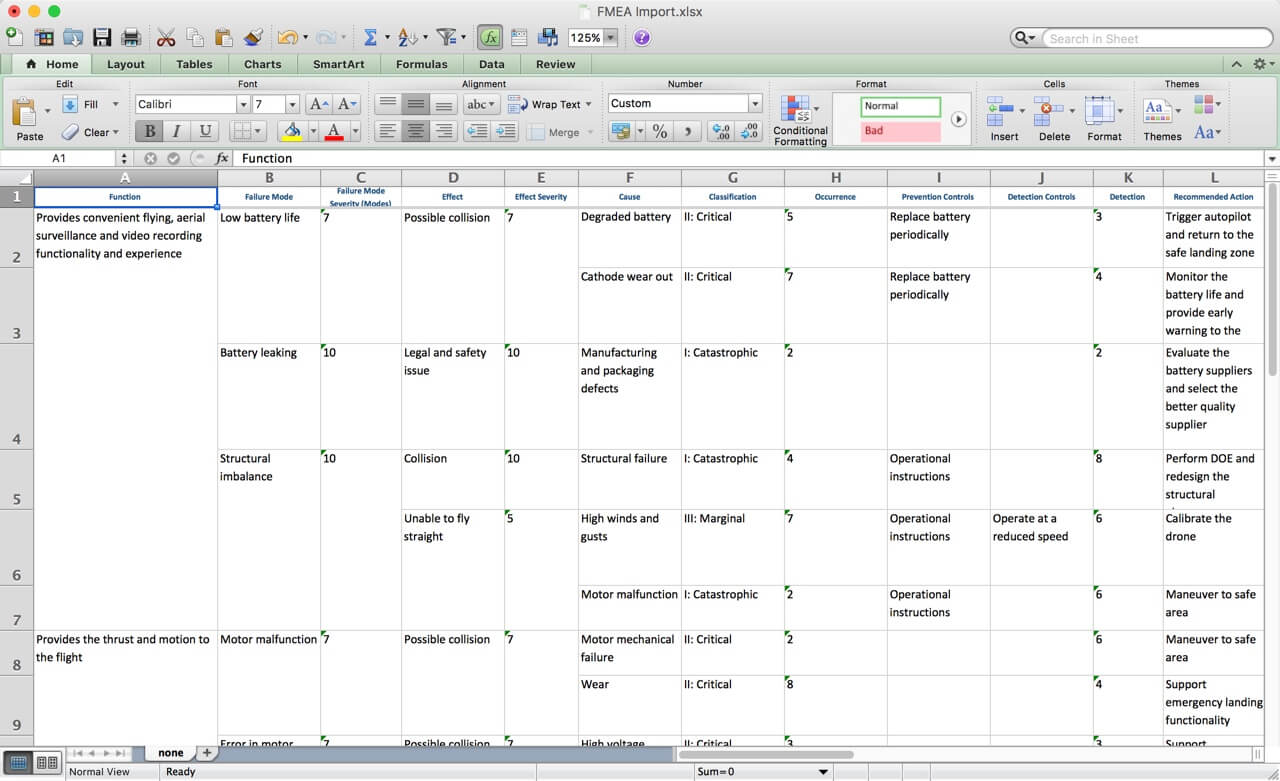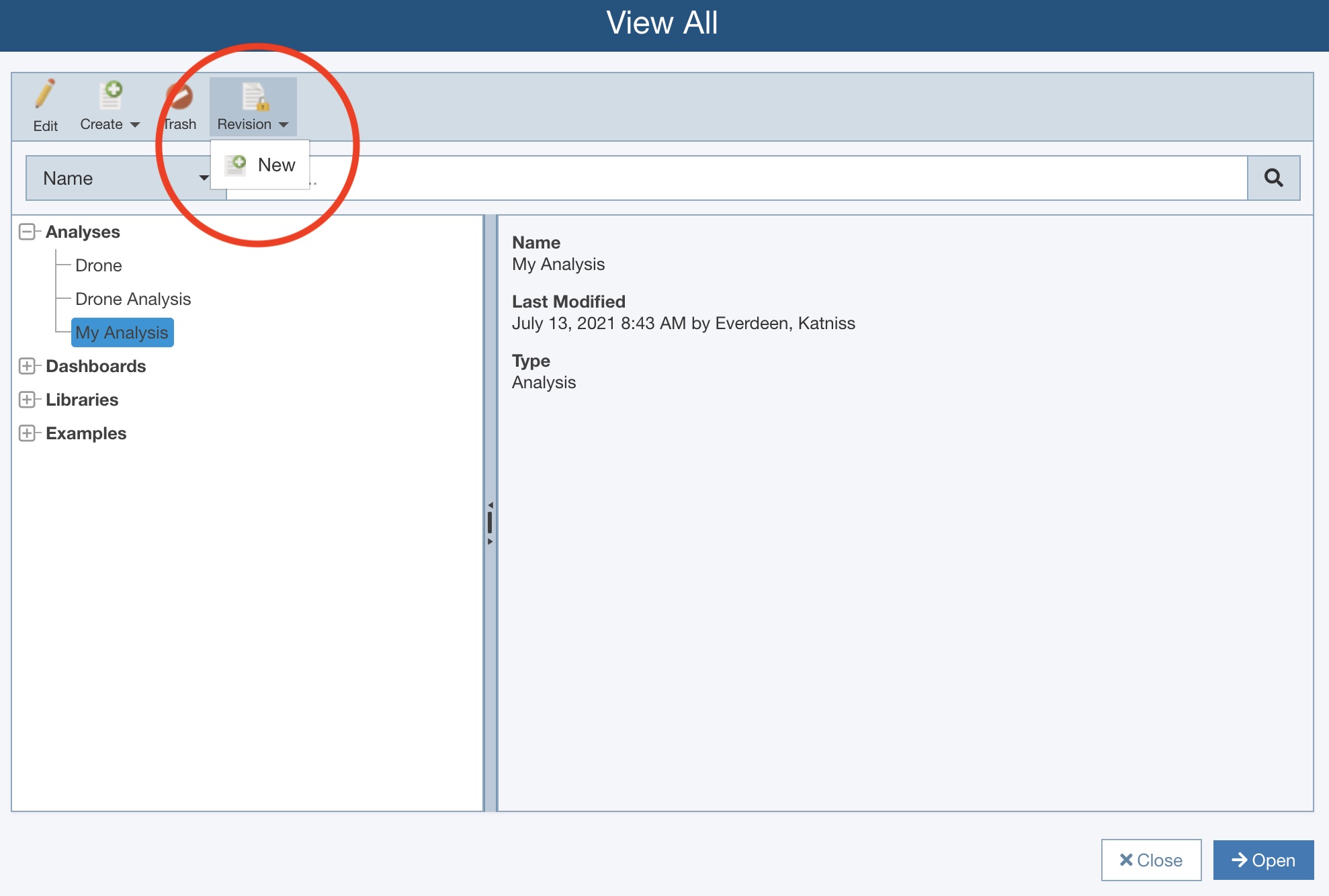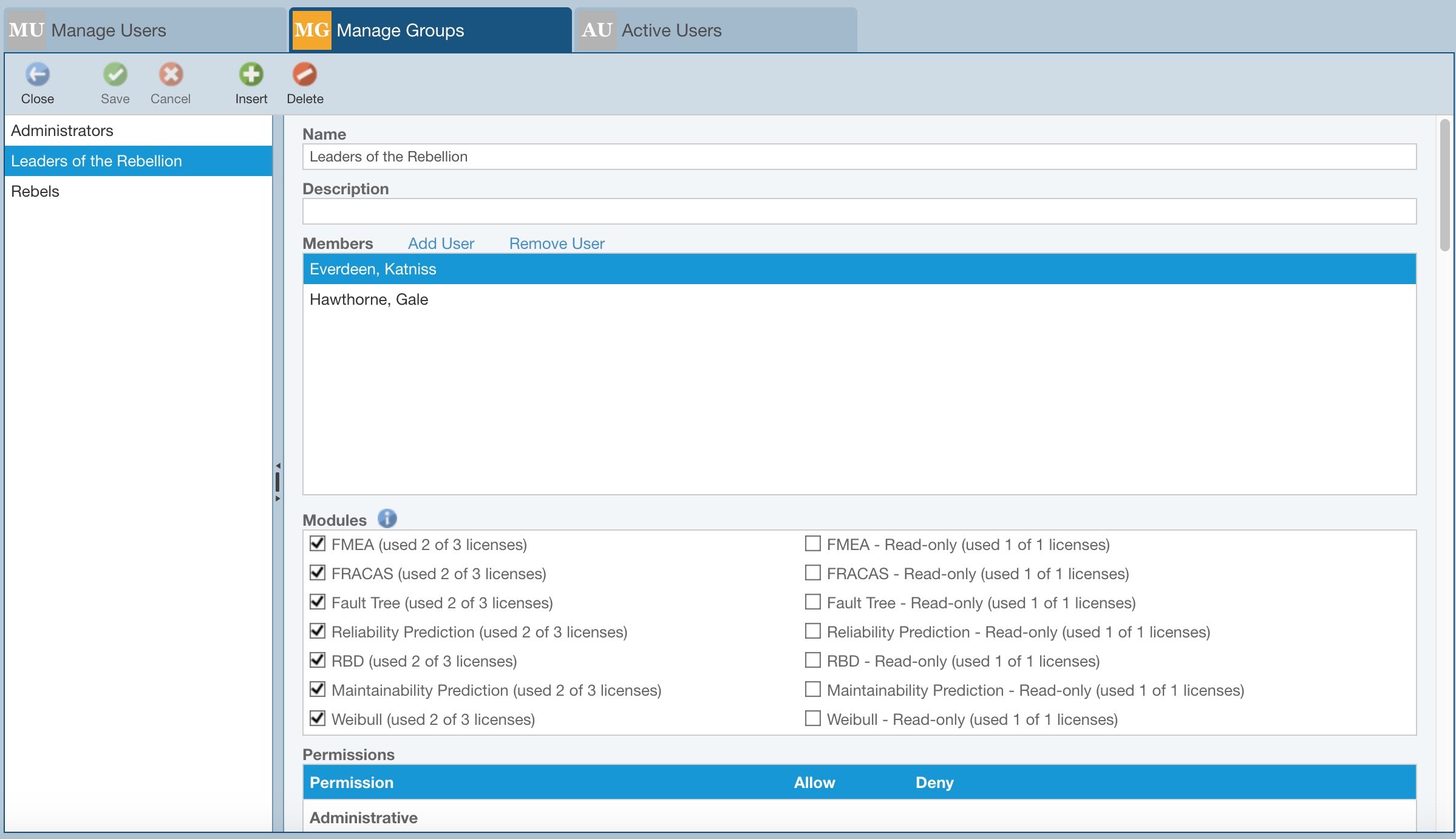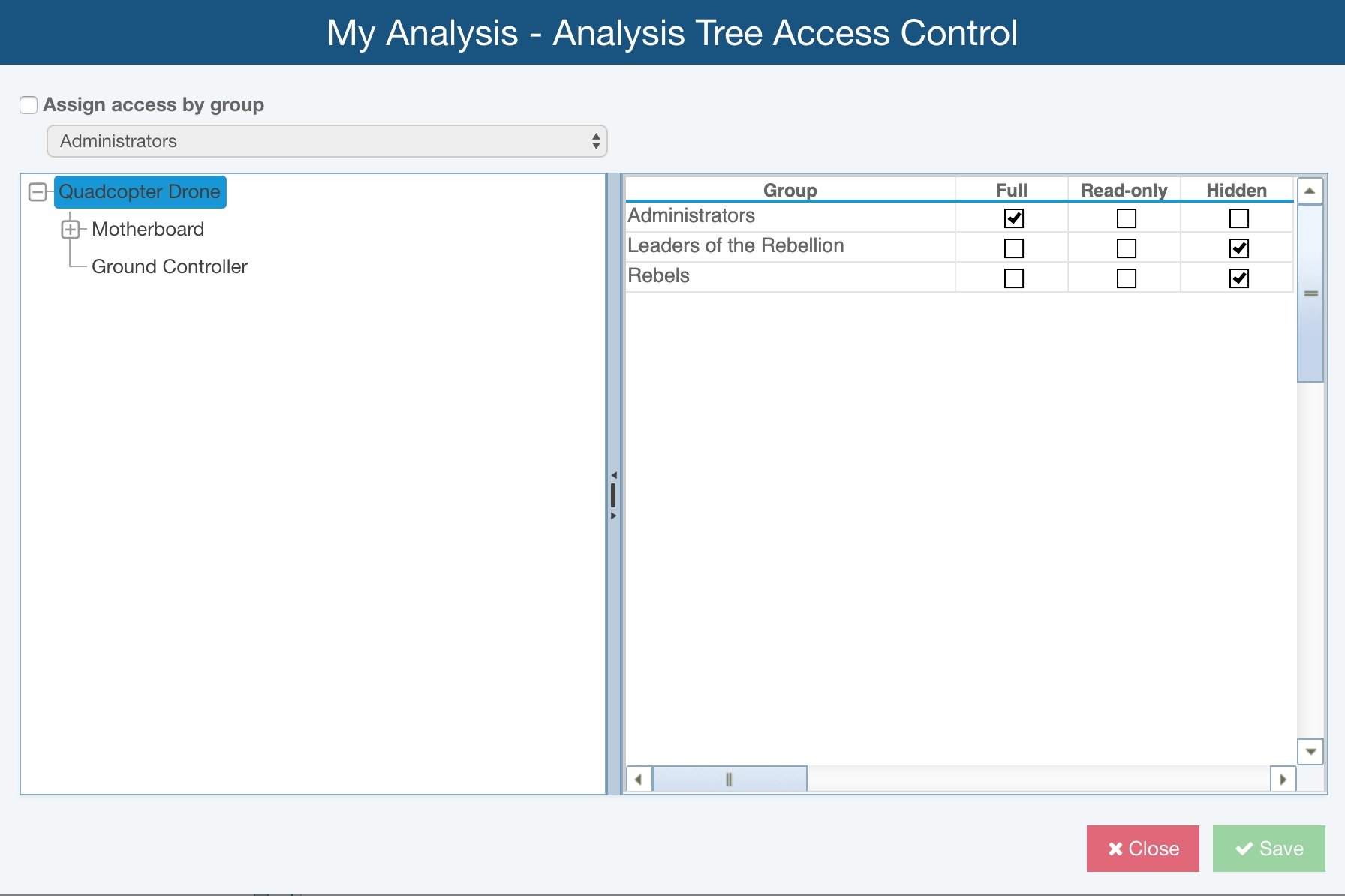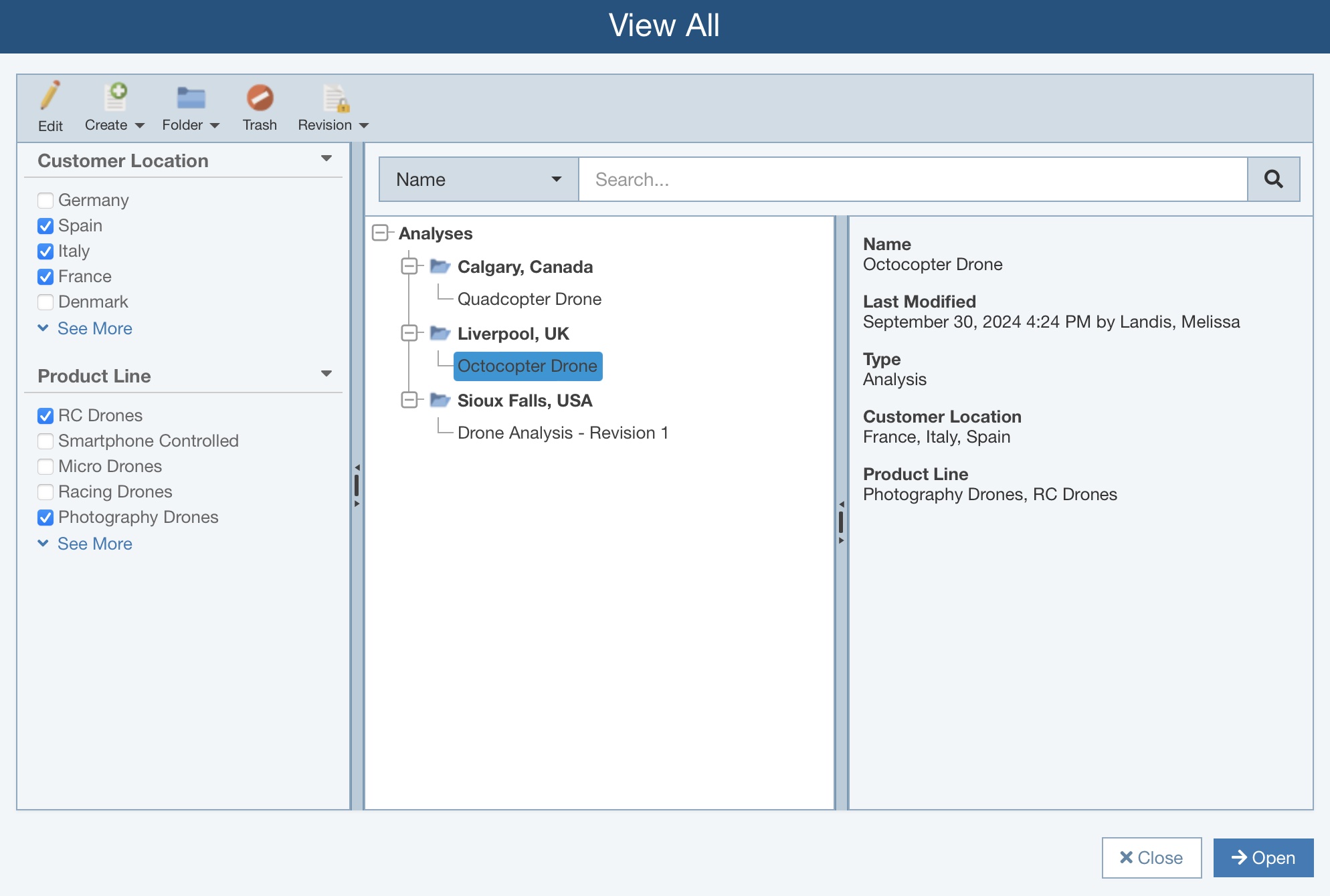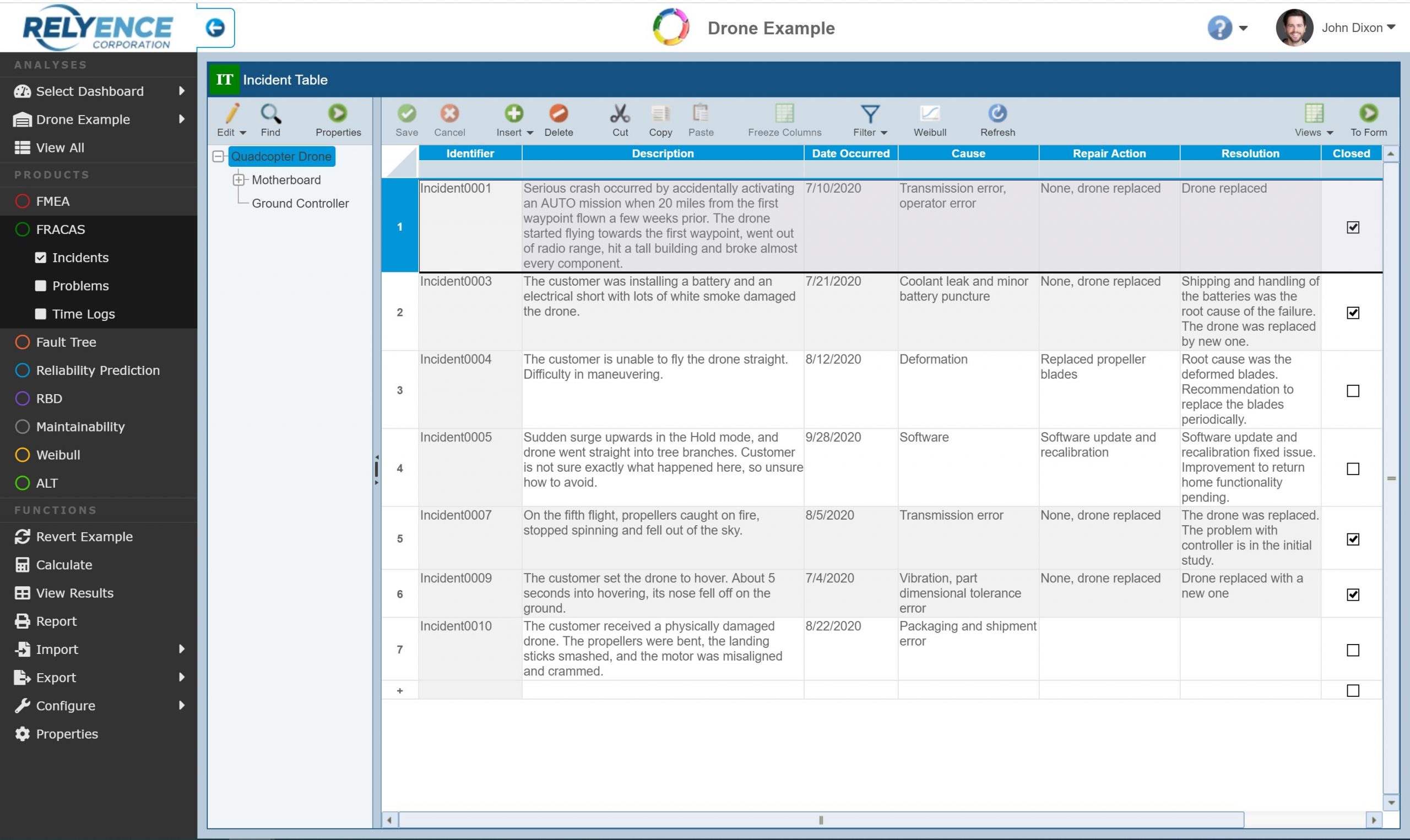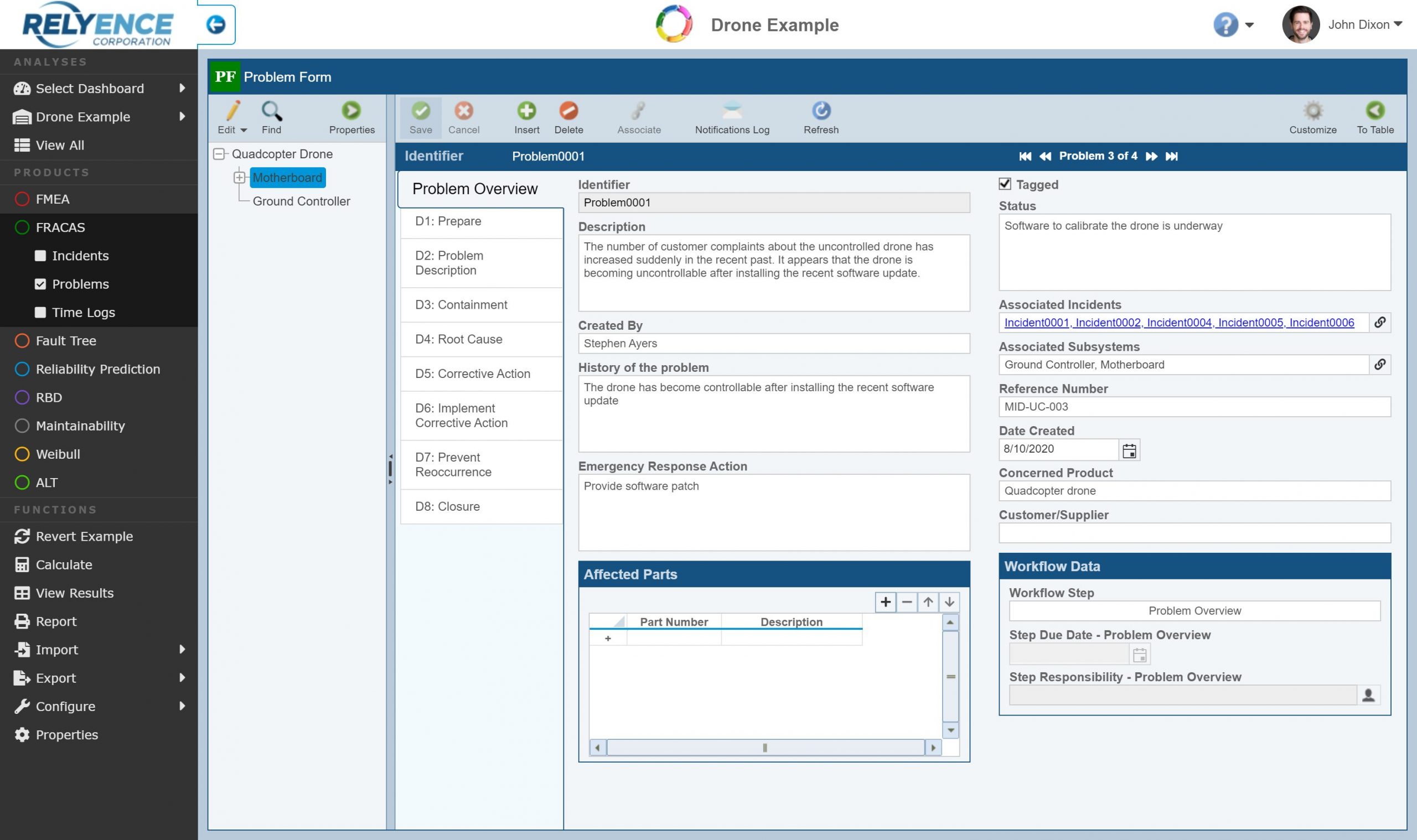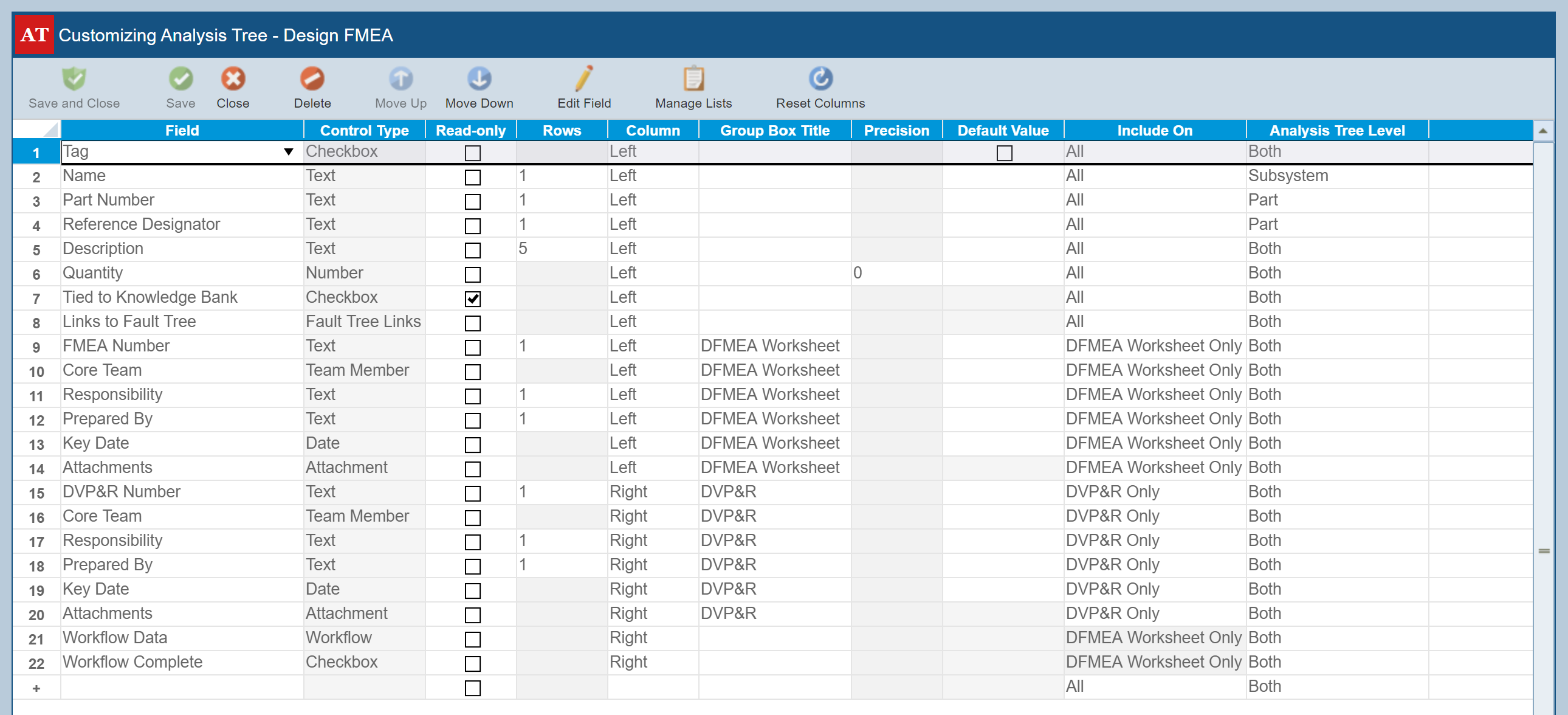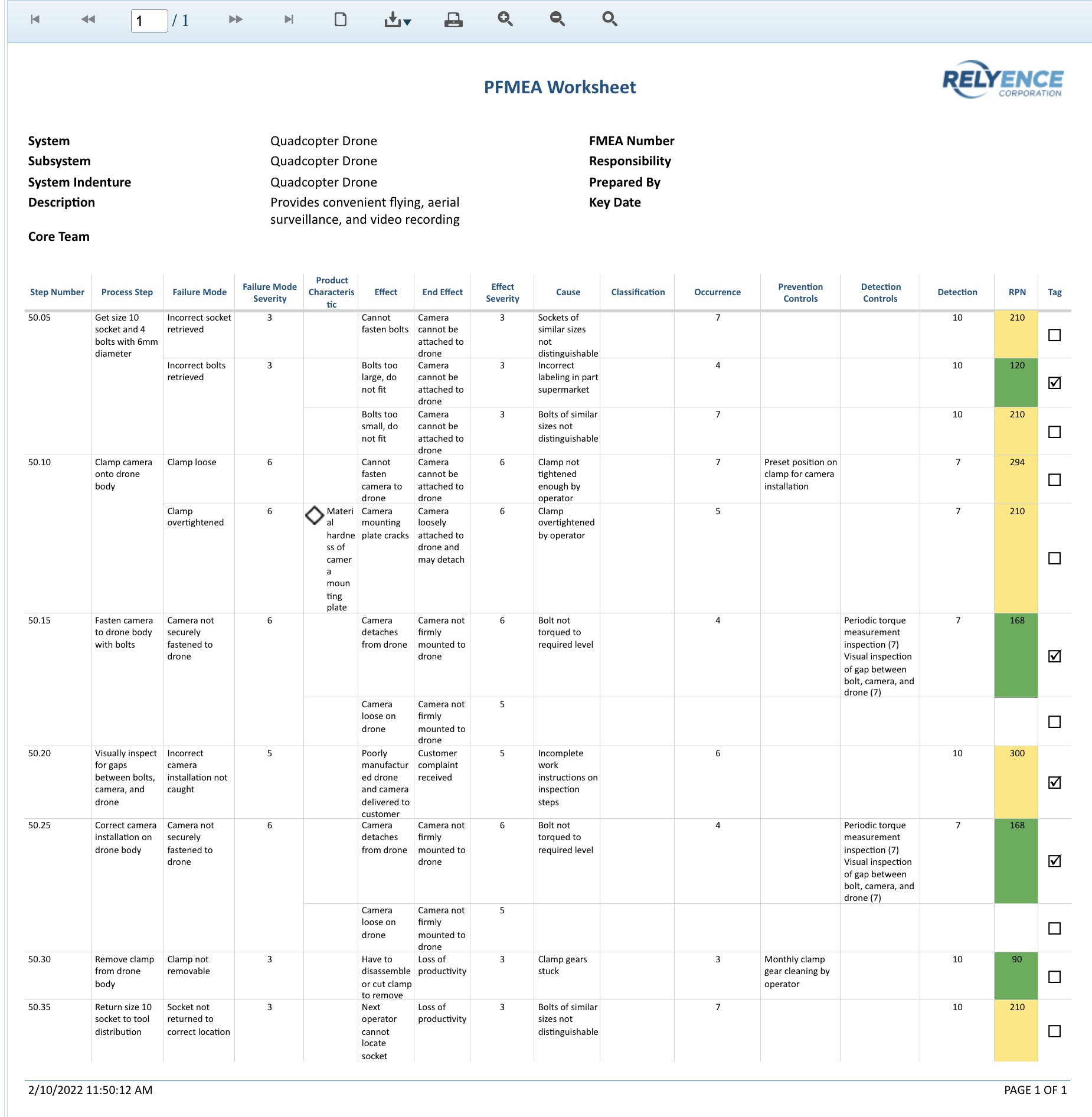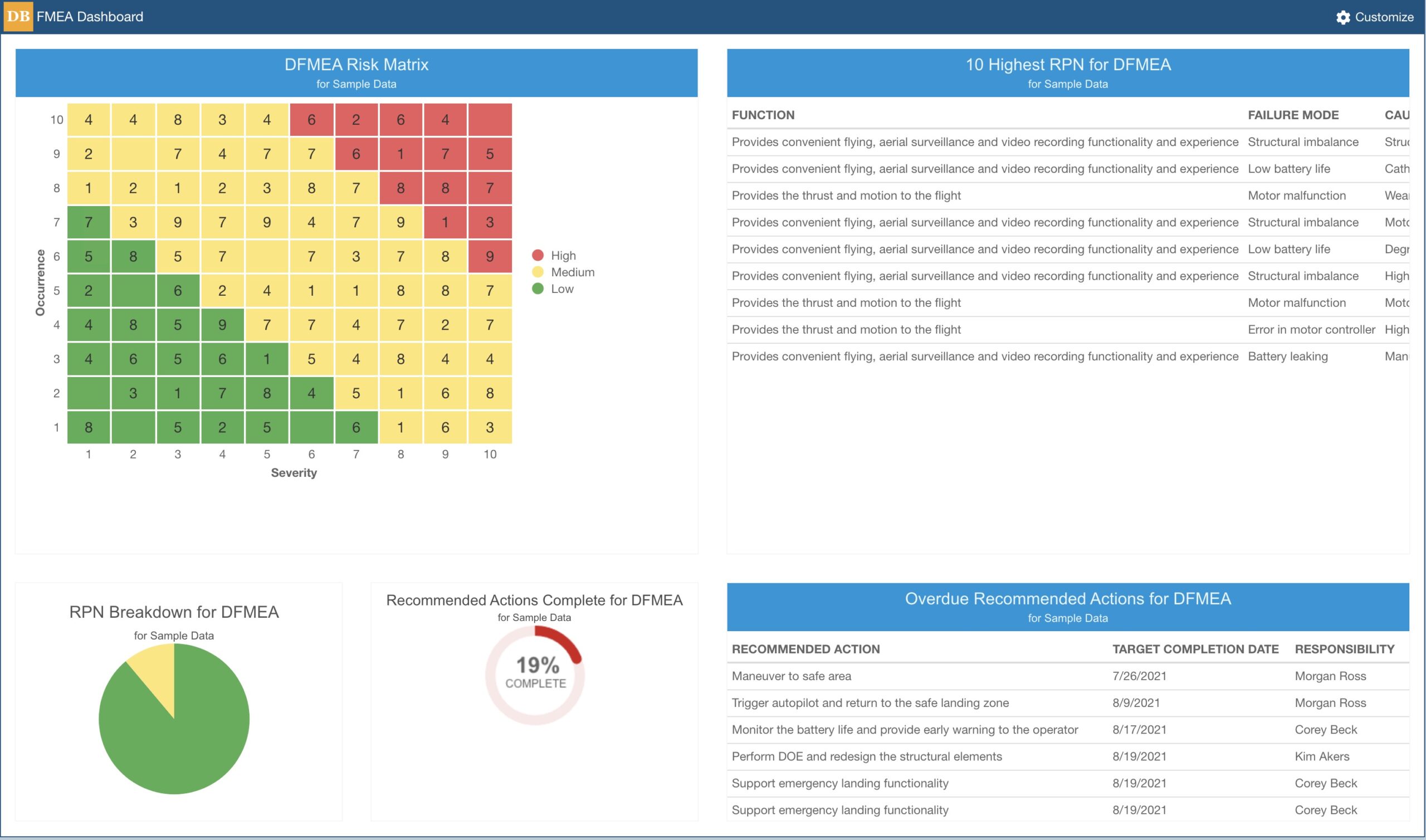POWERFUL FEATURE SET
Relyence offers an array of capabilities to ensure our reliability and quality software tools meet all your needs. Not only does Relyence capably support your analysis requirements, but our tools include an impressive feature set that adds the power and capabilities you expect in a best-in-class software package. Data importing and exporting, audit tracking, revision control, role-based permissions, detailed access control settings, customized filtering, API support, cross-module integration, and user interface and report customization are some of the powerful features that make Relyence the choice platform for your reliability and quality analysis needs.
Data Importing and Exporting
Importing existing data from a wide array of sources, including Excel, is easy with Relyence. Our step-by-step import guides you through the process, our smart-mapping feature automates your data import, and Imports can be stored and saved for efficient reusability. This means that moving your existing analyses to the Relyence framework can be handled with ease. We also offer direct data importing from other reliability packages if needed.
If you need to export your Relyence information for any reason, this process is also handled in a streamlined one step approach.
Relyence’s data importing and exporting capabilities provide flexibility, enabling you to capture data from a variety of sources or subcontractors, as well as allowing you to export data to an array of formats for distribution or further manipulation.
Audit Tracking
Relyence Audit Trail offers the ability to track and record all changes made to your data. Typically used for security and auditing purposes, audit trails provide a detailed log of data modifications. They can also be used in more every-day applications to provide answers to questions such as “Who made this change?”, or “When was this change made?”, or “Why was this change made?”.
You can review automatically logged audit data several ways:
- By individual data field. View the changes made to specific individual data field in your Analysis.
- By line item. View the modification made to a particular row of data in your Analysis.
- Entire Analysis. Generate a full audit trail report for your entire Analysis to an Excel or CSV format.
- Most Recently Changed. Generate a report that indicates the last changes made to data items in your Analysis.
Revision Control
Relyence supports the ability to create Revisions of your Analyses and Analysis Tree items. You can use Revisions for any purpose you desire, but their main intent is to provide a way to archive and preserve an Analysis at an important milestone or date. For example, perhaps you have completed an Analysis for the first version of your product, and now you are ready to move forward with your Analysis as you develop a second version of your product. You want to start with the original Analysis and modify as needed, but you want to preserve the final version of your Analysis from your initial product release. Or, in some cases, for compliance reasons, you may be required to archive the original Analysis. In these cases and many others, Relyence Revisions are a perfect solution.
Role-Based Permissions
Relyence supports managing team members and their access to your Relyence toolset through comprehensive User and Group management features.
Defining Groups allows you to control access to your Relyence modules and set the permissions for those modules for your team members. For example, you may have a team responsible for FMEAs and a different team responsible for FRACAS. You can create a “FMEA Team” and a “FRACAS Team” and add team members accordingly. You can also define the allowed permissions for each individual Group. This list of permission settings in Relyence is highly detailed and allows you to configure each Group as you require.
Users are all team members who use or access your Relyence tools. Your Relyence Users all have their own unique username and password. Users can be a member of a single Group, or multiple Groups, depending upon their needs.
Comprehensive Data Access Control
Relyence provides a long list of functions for highly detailed organization and access control of your analysis data.
The Access Control feature allows you to selectively set an entire Analysis, or components of your Analysis, to Full, Read-only, or Hidden on a per Group basis. Access Control capabilities provide all the flexibility you need to set up access to your data in any way you choose.
For example, this capability can be used in the following scenario: you have a large and extensive team working on a system. Perhaps even some teams are external to your organization. However, you want everyone working on the system to use the same Analysis, but only be able to enter data about their particular subsystem. However, system integrators can view all subsystems and pull the data together at a higher level for analysis. In this case, you can set the subsystem a particular team is responsible for to be fully editable, the subsystems that they need to integrate with to be read-only, and all other subsystems to be hidden from their view. System integrators have access to all data.
Analysis Organization Capabilities
The View All Sidebar function is a power-packed feature enabling you to easily view, open, and organize your Relyence Analyses. The handy Search bar allows you to search your Analyses by Name or Description. In addition to the basic search features, you can use Folders and Analysis Categories to further organize the View All function.
Folders provide enhanced organization with the ability to create a hierarchical structure for your Analyses, Knowledge Banks, and Dashboards so you can navigate through your documents with ease. Additionally, Folders support full Access Control features, ensuring efficient and effective administrative setup.
Analysis Categories allow you to attribute criteria that are applicable to your Analyses. You can then filter your list of Analyses based on Categories in View All. An easy way to think about the View All Category filtering capability is to liken it to how you use filtering when online shopping. You simply click off the list of attributes you are searching for – colors, styles, price, etc., to filter the list of products to include only those matching your search criteria. Analysis Categories filtering operates in the same efficient manner!
API Functionality
The Relyence API (Application Programming Interface) provides an efficient way for you to import data into Relyence from any source, as well as export Relyence data to any external application. Relyence’s API functions enable you to seamlessly integrate the reliability and quality data from Relyence into your existing applications. Data entry is efficient and organized, ensuring no duplication of effort and minimizing errors.
Cross-Module Data Integration
The Relyence platform relies on a backend, integrated database, so all your reliability data is available across all your Relyence modules. This allows for efficient data access – no copying and pasting or duplicating data across your various reliability tools. The data associations allow you to move between analysis modules with a simple click of the mouse. A sampling of some of the cross-module integration in Relyence includes:
- The Analysis Tree is shared between FMEA, FRACAS, Reliability Prediction, RCM, and Maintainability Prediction
- FMEA Step Numbers and Process Steps are kept in sync across your PFD, FMEA Worksheet, and Control Plan
- FMEA Prevention and Detection Controls are kept in sync across your PFD, FMEA Worksheet, and Control Plan
- FRACAS Incidents can be associated with related Problems
- FRACAS Incidents and Problems can be associated with related Subsystems
- FRACAS Problems can be associated with Fault Tree gates
- Fault Trees can be built from and kept in sync with FMEAs
- Fault Tree Events can be linked to Reliability Prediction Subsystems
- Fault Tree Gates and Events can be linked to an item in FMEA
- Reliability Prediction Parts can be linked to Weibull Life Data Sets
- RBD blocks can be linked to Reliability Prediction subsystems
- RBD blocks can be linked to Weibull Life Data Sets
- RCM failure data can be retrieved from FMEA
- Weibull Life Data Sets can be generated from FRACAS Incidents
Customization Capabilities
Though Relyence comes supplied with out-of-the-box capabilities that allow you to get up and running in minimal time, you can customize all aspects of the Relyence user interface. You can start with the supplied user interface and make minor changes to it, or start from a completely new format and configure the tables and forms as you prefer. Our goal is to ensure our tools adapt to you, and not vice versa!
The Relyence customization features are available to you, so you can perform the customization yourself with ease. However, if you prefer to engage our Professional Services team to help, we are happy to offer that service as well.
Flexible Report Generation
Relyence includes a comprehensive reporting engine to enable you to generate complete reports of all your information. Using the Relyence Views customization feature, you can easily create data views that include the specific data you require that can then be used to generate a variety of reports. By utilizing the customization capabilities, you can have a bank of reports available for various purposes. Once generated, your Relyence reports can be saved to a variety of formats with one click: PDF, Excel, PowerPoint, TIFF, and Word.
Powerful Dashboards
Relyence Dashboards provide an impactful, visual approach for reviewing all your analysis data. With a high-level, at-a-glance overview of a wide range of performance metrics and status indicators, Dashboards offer a focused overview for quick assessment.
An array of features allow you to get the most from your Dashboards:
- Dashboards are completely customizable.
- Dashboards support cross-product data gathering.
- Dashboards support drilldown capabilities so that all underlying data can be easily expanded with a click of the mouse.
- Dashboard tabular data can be exported to Excel spreadsheets for use in presentations or for integration with other applications.
- Data filtering capabilities enable you to selectively include the most pertinent data.
Relyence Dashboards provide a holistic review of your system and processes. This clear, concise overview enables you to quickly gauge your system health, proactively address potential areas of concern, and turn insight into action.

